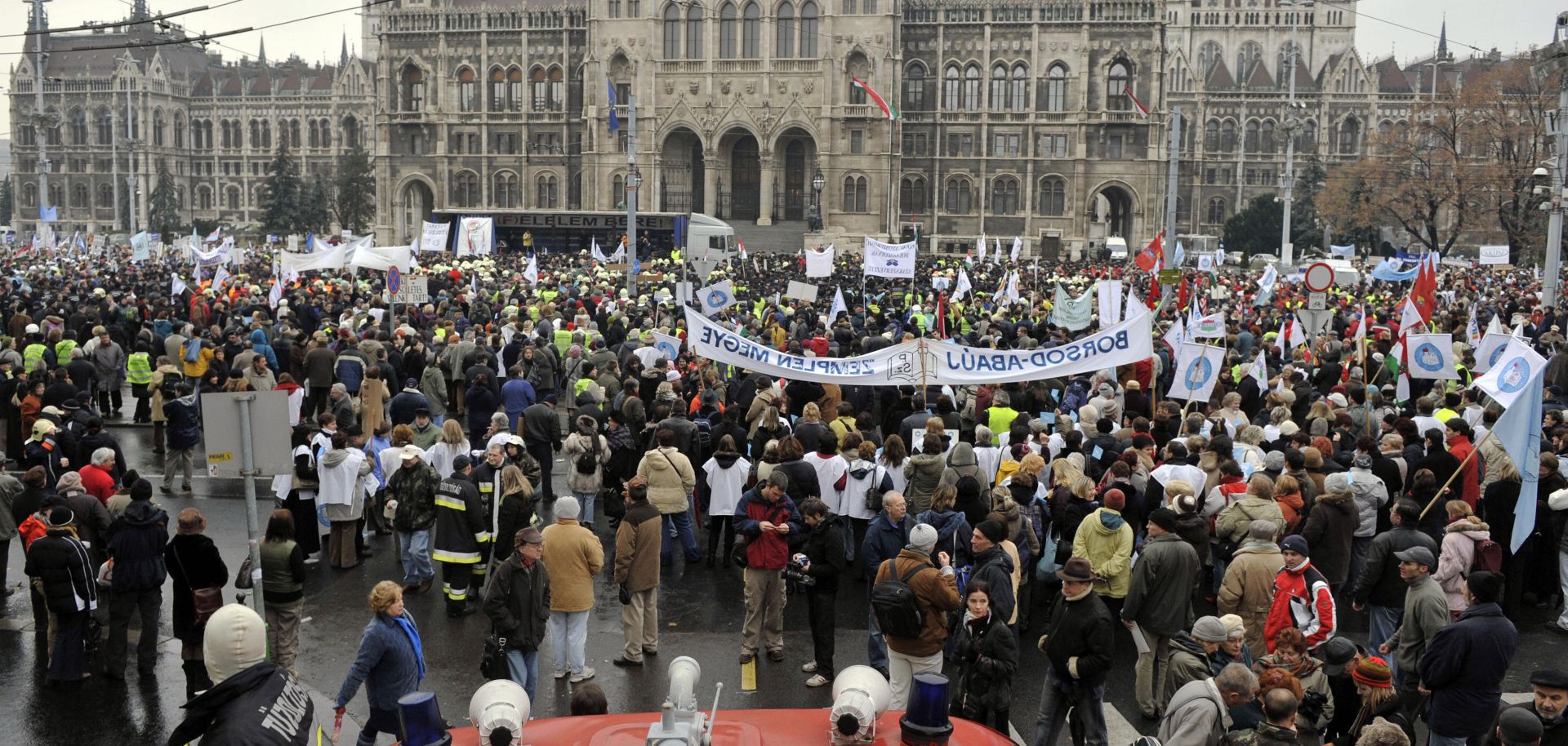
Hungary's economic turmoil since September 2008 appears to be reflected in the results of the April 11 election, which swept the center-right Fidesz party to a majority in parliament and brought substantial returns for the far-right Jobbik party. Hungary's forint weakened considerably against the euro and the Swiss franc between August 2008 and March 2009, and its substantial amounts of debt denominated in foreign currencies still leave the economy vulnerable. The rise of nationalist sentiment is common in Europe during such periods — a trend confirmed by the victory for Fidesz, which uses nationalist rhetoric as a means of expanding Hungary's influence in the Central European region.


